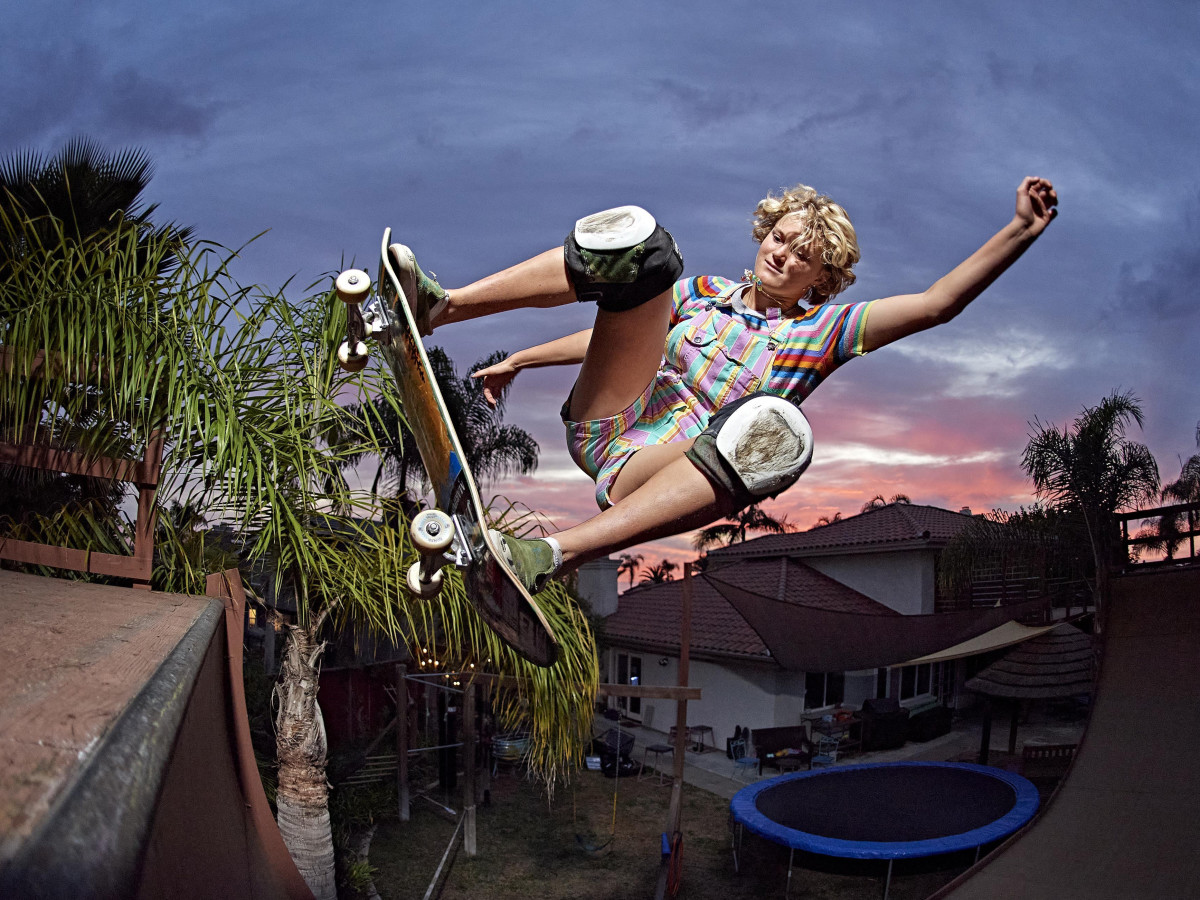Q&A: Bryce Wettstein Is a Free Spirit, Flying High

Sign up for our free daily Olympics newsletter: Very Olympic Today. You'll catch up on the top stories, smaller events, things you may have missed while you were sleeping and links to the best writing from SI’s reporters on the ground in Tokyo.
Meet Bryce Wettstein of Encinitas, Calif., the 17-year-old ukulele-playing, top-ranked park skateboarder who will represent the U.S. in Tokyo.
Sports Illustrated: What’s it like imagining yourself in the Olympics?
Bryce Wettstein: I think of it like a big dream. Since it’s been postponed a year, it seems that much more unreal. It’s one of those things that never kicks in, almost like it’s never digested, ever. Right now, I’m trying to figure out what it is that I really want to aim toward, without trying to overthink it.
SI: Is it fun to think of skateboarding as a competition between countries?
BW: When I think of skateboarding like that, a smile comes over me. It’ll always be this art and this place where your imagination takes over. But when you put it into contest territory, it’s a blend of sport and art. It doesn’t have to be one thing for it to be beautiful.
SI: How did you first get into skateboarding?
BW: I was 5 or 6, and my dad said that he was going to skate in this pool and asked if I wanted to come. I got there and it was this skateboarding bowl without any water in it. And he was just carving around. It really piqued my curiosity, because there was never anything really wrong. When you’re younger, you’re learning about the rules. But with skateboarding, there was absolutely no objective. You aren’t required to fall in someone else’s territory.
SI: What’s your typical practice routine like?
BW: I warm up and get my knees loosened up. Sometimes I get lost [in my backyard] and never end up going to the skate park. I’ll be on this trick and I won’t want to leave. Because even a little bit on that bowl or that vert ramp, it’s enough to turn the tables on how you feel that day. Sometimes we take too long and because of the neighbors, we’ll have to stop before it’s dark.

SI: What’s the story behind your backyard skating bowl?
BW: My dad and I came up with the idea. We had a 22-year-old iguana named Spike. He was one of the largest iguanas we’d ever seen, and he was the most special part of our house. We realized we wanted to build this bowl after him. So we called it the Iguana Bowl. Everybody’s always skateboarding in it, and we have so many memories.
SI: Has skateboarding opened up other areas of creativity?
BW: I wouldn’t see music the way I do without skateboarding. It’s like playing tug-of-war with everything. Once you tug on this end, the other thing will come falling back. You have to see what all those ends meet, because they all meet together. When you play the piano or you’re singing something, it’s like this gust of wind that hits you. Skateboarding is like that one key you find that you don’t even think is a key. You don’t even know if it unlocks anything, and then it’s more than a key and and unlocks millions of things.
SI: How did you become interested in neuroscience?
BW: When you think of the world and how you see it, you think: Where does it all stem from? It all registers in your brain. Your brain is this whole earth, this whole universe. My first encounter with it was when my grandma bought me one of those Neuroscience for Dummies books for Christmas. And when I opened it, I realized it was not for dummies, and that’s what I love about it. Sometimes it doesn’t make sense to me, and that’s why I love the brain, because there’s nothing sensical about it. Everything keeps going and going, and you’re full of wonder. The more wonder you have, the more you want to know.
SI: What has the last year been like for you?
BW: It’s been a whirlwind. I grew a lot on the skateboard. Before, I was in a rut. I felt like there were these requirements sometimes and I felt, I should do this. I never really thought, What can I do? I realized I can manipulate [the skateboard] in all these different ways . . . and do things that weren’t “right.” That’s what skateboarding is.
SI: You teach 6- to 8-year-old girls how to skateboard and surf. What has that been like for you?
BW: When I take their hands, there’s a smile on their faces every time. They’re seeing a part of themselves they’ve never seen before. That’s what it means to skateboard. I feel so lucky to have met them. We’re inspiring each other.
More Olympics Coverage
